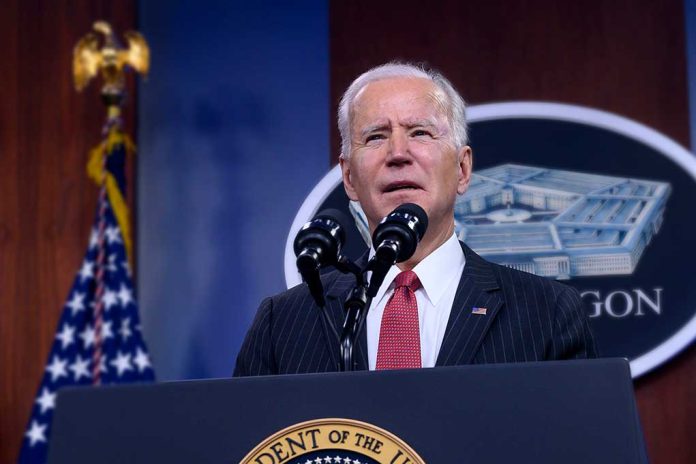
President Biden’s final weeks in office focus on clemency, climate action, student debt relief, and AI challenges, aiming to cement his legacy.
At a Glance
- Biden issues largest single-day act of clemency in history, pardoning 39 and commuting sentences for nearly 1,500.
- Administration approves $175 billion in student debt relief for nearly 5 million borrowers.
- Climate initiatives include protecting lands and waters, and continuing efforts with various leaders.
- White House aims to allocate remaining funds from Inflation Reduction Act and CHIPS Act.
- Biden issues national security memorandum on AI, emphasizing responsible application and potential threats.
Biden’s Clemency Push and Student Debt Relief
As President Joe Biden’s term nears its end, his administration is making significant strides in key policy areas. On December 12, Biden made history with the largest single-day act of clemency, pardoning 39 individuals and commuting sentences for nearly 1,500 others. This move aligns with his broader initiative to expand clemency options, including categorical pardons for marijuana-related offenses and for former military members convicted of conduct related to their sexual orientation.
With the exception of pardons, everything else will likely be rescinded. What is wrong with Joe?
White House Outlines Biden’s To-Do List for Final Weeks in Office https://t.co/VhrDASwvTz via @epochtimes
— Richard Rogers (@Rogersrg1a) December 16, 2024
In addition to clemency efforts, the Biden administration has made substantial progress in addressing student debt. The White House reports approving $175 billion in student debt relief for nearly 5 million borrowers, a move that could have far-reaching economic implications for millions of Americans.
Climate Action and Fund Allocation
Climate action remains a central focus of Biden’s final presidential initiatives. The administration plans to protect lands and waters while continuing climate efforts with various leaders. This commitment is evident in recent funding allocations, including $735 million for zero-emission vehicles.
The White House is working diligently to distribute all unspent funds before the new administration takes over. With 98% of funds already allocated, recent disbursements include $6.2 billion to Micron Technology for memory chip facilities, showcasing the administration’s commitment to advancing technology and infrastructure.
Bloomberg: Biden Plans Measures on AI, Clemency and Lands in Final Stretch https://t.co/s4y6KmfpKR
— Ben LaBolt (@WHCommsDir) December 15, 2024
Addressing AI Challenges
Recognizing the growing importance and potential risks of artificial intelligence, Biden has issued a national security memorandum on AI. This document emphasizes the need for responsible application of AI in national security functions and warns of AI-related threats.
This initiative underscores the administration’s forward-thinking approach to emerging technologies and their potential impact on national security and global cooperation.
Looking Beyond 2025
As the Biden administration enters its final stretch, the focus is on ensuring that the impact of its policies extends well beyond the President’s term. The White House is prioritizing the judicious allocation of remaining funds from influential policies such as the Inflation Reduction Act and the CHIPS Act, which are intended to bolster infrastructure and advance technology.
“A Presidency is not measured just in weeks, months, or four-year terms alone—rather its impact is evaluated for years and decades to come,” LaBolt said. “The dividends of the Biden-Harris Administration will continue to transform the country long after January 20, 2025.”
As President Biden works to solidify his legacy, the true impact of these final initiatives will likely be felt long after he leaves office, shaping the nation’s trajectory on issues ranging from criminal justice reform to climate policy and technological advancement.
Sources:
- FACT SHEET: President Biden Announces Clemency for Nearly 1,500 Americans
- White House Outlines Biden’s To-Do List for Final Weeks in Office







